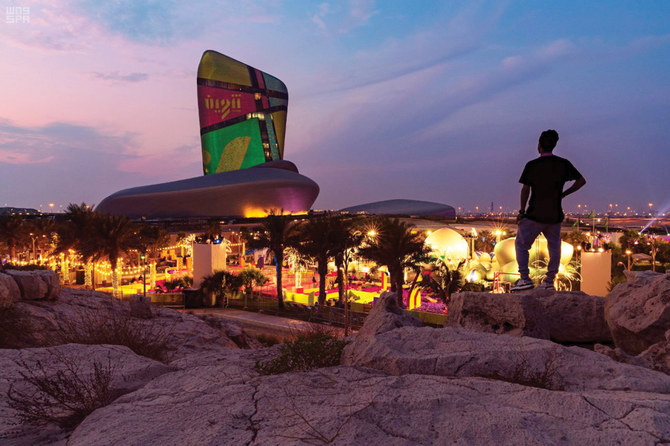DHAHRAN: The King Abdul Aziz Center for World Culture (Ithra) announced it received about one million visitors from inside and outside the Kingdom, participating in local, regional and international activities and experiences.
Fatima Al-Rashed, Ithra’s director, said that the center’s mission was to enrich the country and its present and future generations within three axes: Developing cultural and scientific knowledge, stimulating creativity and innovative thinking, and building bridges of cultural communication between cultures and peoples.
“For 1 million visitors, there are 1 million knowledge seekers, looking to develop their skills, refine their creativity and achieve innovative change in ideas based on inspiration and relying on human capabilities and developing them,” she said, adding that the center was looking to receive millions more visitors in the future as a global cultural and tourism destination.
She noted that the number of local, regional and international initiatives, programs and experiences organized by the center reached about 1,000 training workshops, benefitting 10,000 participants. The center also organized 36 theater shows attracting more than 50,000 visitors, in which the performances varied between the Mariinsky Theatre Orchestra and the Vienna and La Scala Italian Orchestras, along with 1,300 cinema shows. Moreover, the center’s various permanent and changing exhibitions, as well as international exhibitions such as the Leonardo da Vinci and Edvard Munch art shows, attracted more than 20,000 visitors.
Al-Rashed stated that Ithra also supports local content, by producing more than 85 items ranging from audio and visual materials to works of art, publications and Saudi films that had won awards in a number of forums, including the Saudi film “Distance Zero” directed by Abdul Aziz Al-Shalahi, which obtained the Golden Palm award at the Alexandria Film Festival.
Ithra also produced 11 Saudi films, most notably “Jude,” the first feature film that recounts the evolution of the Kingdom and its most important characteristics. “The Ithra Art Prize is also part of the local content support provided by the center, in collaboration with Art Dubai, and aims to support Saudi creativity and talents, and promote art in Saudi Arabia,” she said.
“Some 3,000 Saudi volunteers have contributed to achieve Ithra’s message this year by providing nearly 250,000 hours of voluntary work, and receiving 40,000 training hours through workshops that promote personality building and life skills.”
Al-Rashed explained that the center also runs three pioneering programs, namely “Tanween,” which is the most prominent innovation season of its kind in the region, and aims to attract 100,000 visitors and participants annually, and allows interaction with experts and international experiences.
“Another program is the national reading competition ‘Read’ which aims to stimulate the love of reading among young people in different regions of the Kingdom, and the ‘Jusoor’ program, which showcases Saudi culture and creative talents in 50 cities, and has been visited by nearly half-a-million people,” she said.
















